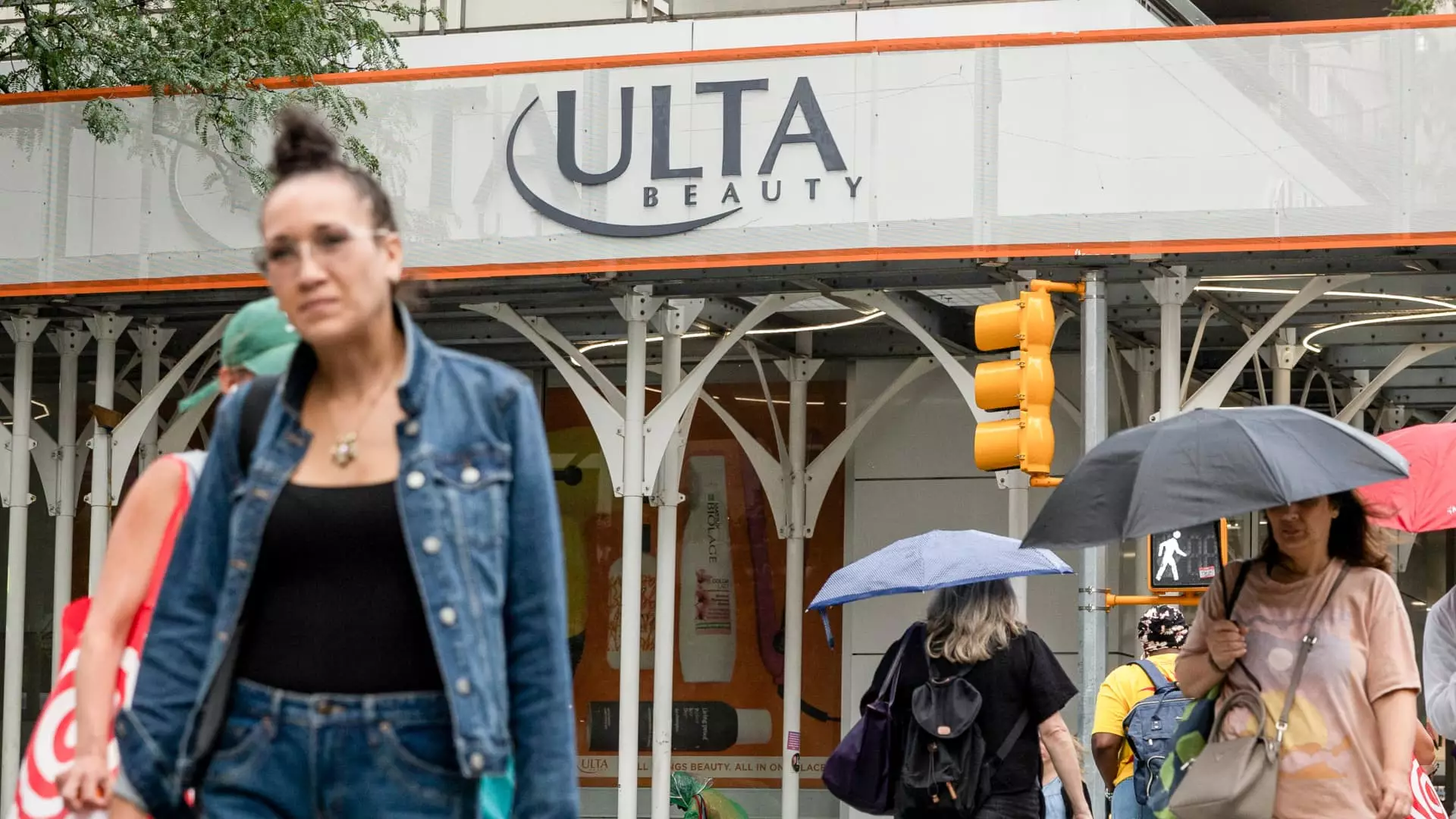Ulta Beauty faced a setback in its second-quarter performance, causing its shares to fall by 7% in extended trading. The company fell short of expectations and trimmed its full-year guidance due to a decline in same-store sales during the most recent period. This marks Ulta’s first earnings per share miss since May 2020 and its first revenue miss since December 2020. Comparable sales for the second quarter fell 1.2%, a significant drop from the 8% increase reported a year earlier and well below the expected growth of 1.2% forecasted by Wall Street analysts.
Ulta CEO Dave Kimbell attributed the declining sales performance to several key factors. These factors include an “unanticipated operational disruption” due to a change in store systems, disappointing impact from promotions, cautious consumer spending, and heightened competition in the beauty industry. Kimbell acknowledged that Ulta’s market share is being challenged, particularly in the prestige beauty sector, where the company lost share driven by makeup and hair categories. The competitive pressures faced by Ulta have impacted 80% of its stores, with consumers becoming increasingly selective with their beauty purchases.
Revised Guidance and Future Outlook
As a result of the underwhelming performance in the second quarter, Ulta adjusted its full-year guidance. The company now forecasts same-store sales to be flat or down by 2%, compared to the prior guidance of 2% to 3% growth. Additionally, Ulta lowered its revenue outlook to $11 billion to $11.2 billion and revised its earnings per share forecast to $22.60 to $23.50, down from the previous forecast of $25.20 to $26. Ulta’s CFO Paula Oyibo mentioned that the company expects it will take more time for its actions to change the trajectory of its sales and that stores impacted by competitive openings will continue to face pressure.
Efforts to Enhance Sales and Customer Experience
In response to the challenges faced by Ulta, CEO Dave Kimbell outlined plans to boost sales and enhance the customer experience through various initiatives. These initiatives include relaunching Ulta’s own beauty collection, introducing new personalized product recommendations for online shoppers, and increasing the value of the rewards program with member-only events and exclusive offers. Kimbell also mentioned expanding Ulta’s partnership with delivery service DoorDash, testing new gamification platforms, and leveraging new marketing technology to personalize the shopping experience for customers.
Ulta’s struggle in the second quarter serves as a wake-up call for the beauty retailer to address the shifting dynamics of the industry and evolving consumer preferences. The company’s proactive approach to identifying opportunities for growth and enhancing customer engagement showcases its commitment to adapting to the changing landscape of the beauty market. By focusing on innovation, personalized experiences, and loyalty rewards, Ulta aims to strengthen its position in the beauty industry and regain market share lost to competitors. As Ulta continues to navigate through challenging times, the company remains optimistic about its underlying strength and future prospects in the beauty retail sector.

